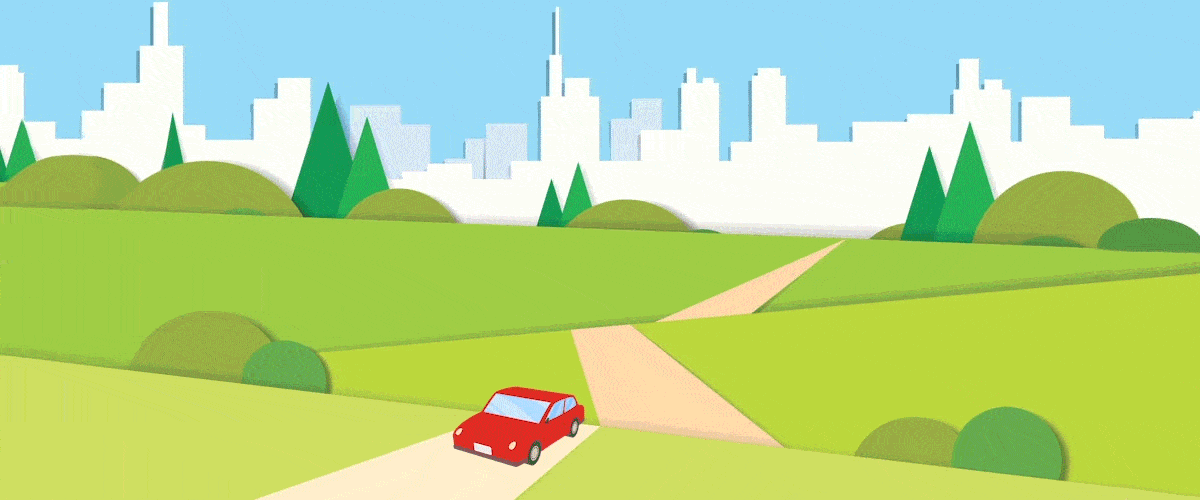An infectious disease expert shares tips to protect yourself from COVID-19 while on vacation this summer.
In 2019, Americans took more than 800 million trips from July through September. This summer, the COVID-19 pandemic has redefined vacation travel. People have been forced to reconsider where to go, how to get there, and the safety precautions they need to take. While globetrotting may not be in the cards this summer, there are still plenty of ways to enjoy a getaway while protecting yourself from coronavirus. Here, Dr. Ole Vielemeyer, medical director of Infectious Disease Associates and Travel Medicine at NewYork-Presbyterian/Weill Cornell Medical Center and associate professor of clinical medicine at Weill Cornell Medicine, shares his tips on how to stay safe while traveling during the coronavirus outbreak.
Keep It Simple
Take a trip that is direct and door-to-door if possible; avoid a lot of different means of transportation or transfers. For example, traveling by car during COVID-19 will likely be the safest, so look for destinations within driving distance. Get on a plane only if you need to visit family or if it’s an emergency. If you must fly, keep in mind that a nonstop flight is safer than one with layovers, because of fewer chances of being exposed to the virus. Another advantage of taking a car is that after you reach your destination you can use it on local excursions. Regardless, choose local activities that do not require public transportation, and opt for walks and bike rides.
Road Trip Tips
- Choose an off-peak time to travel. Don’t leave on a Friday, when public rest stops will be more crowded.
- Bring your own drinks and snacks to avoid standing in line.
- Wear a mask when you are close to others.
- Keep wipes and hand sanitizers on you at all times.
What to Know About Flying
Airlines have started to adjust to the reality of COVID-19. If you’re planning to fly, check if your airline has measures in place to allow for social distancing when possible, enforces face mask use, and provides ample access to hand sanitizers or handwashing.
Remember that the air on an airplane is quite clean due to industry standards and regulations requiring air circulation and HEPA filters. Therefore, airborne transmission of viruses and other germs is rare, similar to being outdoors. However, the difficulty to social distance on airplanes raises the chance of coronavirus transmission through an infected person’s respiratory droplets. Transmission from touching contaminated surfaces is also possible. So it’s important to wear a face mask that fits well, limit how much you touch objects, and frequently clean your hands.
Keep in mind: Traveling to the airport during the coronavirus outbreak, and the time you spend in an airport during check-in, security checks, boarding, and baggage retrieval may well be riskier than the actual flight itself, so don’t forget about taking precautions on every leg of your travel.
Where to Stay
When you choose lodging, opt for a place where air can circulate through open windows. Or stay outdoors; camping is a great idea. A room with a terrace or balcony would also be good. Seek accommodations that let you open the windows wide.
Hotels with good quality air conditioning and proper filtration systems are adequate options, but are ultimately less predictable than an open window and a balcony or terrace. Establishments will thoroughly clean the rooms, and as long as you have natural air flow, wash your hands, and avoid touching your face — especially mouth and eyes — you won’t be at great risk.
Get Outside
When outdoors, especially if the air is moving, risk of transmission is low. Walks along the beach, a day hike in the hills or mountains, a bike ride — these are great low-risk activities. Plus, you will be amazed by how nature can recharge your batteries when you allow yourself to slow down.
Most transmission of respiratory viruses happens indoors, so avoid activities like eating inside a restaurant, especially if it is crowded. If there are tables outside, pick those. No matter what the activity, being outdoors is always better than being cooped up inside.

